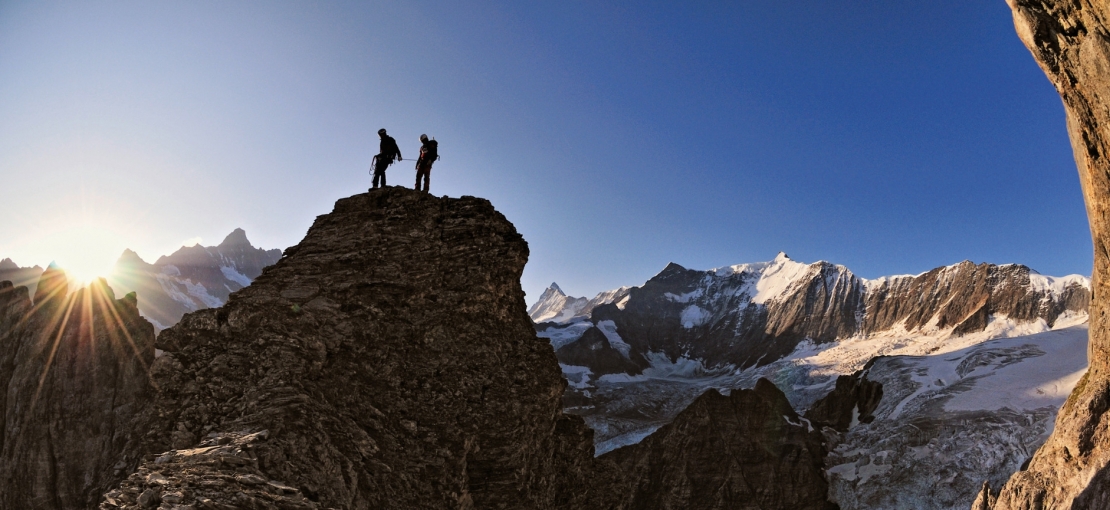
Strategy and analysis
Integrated sustainability strategy based on our convictions
Why should a company that manufactures outdoor products be committed to environmental protection? What exactly is “the problem” and what are the challenges we face? Do we have any real influence on possible solutions or at least improvements?
Our position is clear: any company that “earns its livelihood” through its customers enjoying the outdoors needs to be dedicated to its conservation and protection.
In the face of the world’s rapidly advancing climate change, the dramatic loss of biodiversity, and the glaring inequality in the distribution of prosperity and education on this earth, it quickly becomes clear that humanity faces enormous challenges if we wish to live responsibly, sustainably and in peace with one another.
In the light of the environmental destruction caused by contaminating production processes and inhumane working conditions in the usual production countries, it quickly becomes clear that significant challenges must be met if we want to work responsibly and sustainably.
| GRI: | G4-1 |
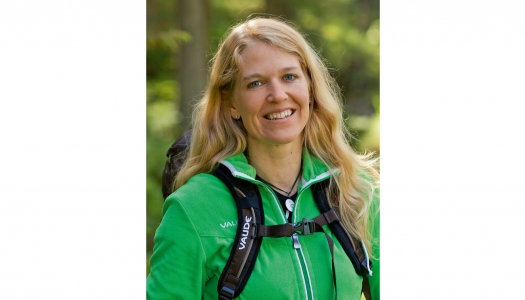
|
»We want to be a sustainable company to the core. Every year we come a little bit closer to realizing our vision.« Antje von Dewitz, CEO
|
Where do we see confirmation of our pioneering role?
Sustainability is now no longer just a niche issue in the outdoor industry. In our opinion, three factors have contributed to this:
- Consumers who purchase outdoor products feel strongly connected to nature, which is why they often have higher expectations of the environmental friendliness of products, than for example, customers in the fashion industry.
- Since 2008, we have been committed to sustainability and have taken strong action. This has helped us become a model for the entire industry.
- Various NGO campaigns are increasing pressure on the textile and outdoor industries.
At VAUDE, sustainability is an inseparable part of our corporate strategy. It is not a side issue and not an issue that only specialists are dealing with. Our sustainability objectives and our business objectives are of equal importance, both of which also comprise sales and financial goals.
Sustainability at VAUDE is a mandate for all employees
Sustainability is our conviction and should be implemented holistically. To achieve this, the responsibility for the implementation of our goals and measures does not lie soley within the CSR team or with the Head of Sustainability. In each department, responsibility is to be found where "normal" work is done. For example, the Head of Product Implementation who supports our producers in Asia is also responsible for the audit and control of the FWF’s "Corrective Action Plan" (CAP).
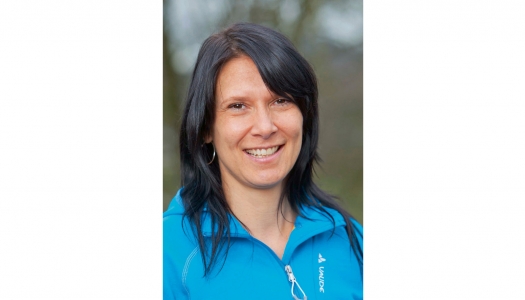
|
»My work as a production manager includes the fact that I feel responsible for fair working conditions.« Susanne Medesi, Purchasing Manager/Production Management & CSR
|
Sustainability objectives have been integrated into the company's goals for the last two years, and employee bonuses are partly dependent on the achievement of sustainability goals. In all divisions, it is considered important that knowledge about sustainability is not just for the experts.
The next goal is to fully integrate sustainability management controlling within the corporate controlling system. Sustainability is used for corporate management, and the evaluation indicators in this area will obtain a corresponding status.
Holistic, highly integrated approach
We are pleased that many of our competitors are following suit, because significant progress is only possible with industry-wide involvement. What makes our sustainability management system special is that we are not just picking out single, effective advertising aspects, but are working holistically with highly integrated methods.
Our VAUDE ecosystem and the EMAS and ISO14001 certifications help us holistically and systematically to identify and develop the environmental aspects of our business operations, evaluate how relevant these are and what influence they have, and decide how we can tackle challenges.
In order to go one step further, we have adapted our Sustainability Report 2013 to the internationally recognized GRI G4 standards.
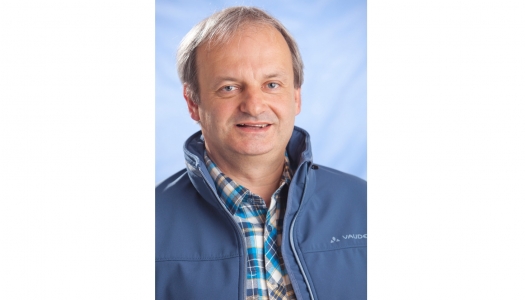
|
»By aligning the sustainability report with the GRI guidelines, we want to make our actions even more transparent and accountable.« Jan Lorch, Business development
|
VAUDE as a driving force for sustainability
We see ourselves as a driving force for sustainability and as a pioneer, for example, in the following areas:
- Our early commitment (since 2001) for the ecological bluesign® textile standard and the widespread use of standards in all product categories, whether clothing, backpacks, tents and sleeping bags - see „Bluesign standard“ and „Bluesign materials“.
- Our approach to biodiversity as the first medium-sized company based on the model project "Business & Biodiversity" at our headquarters in Obereisenbach - see "Why our biodiversity is important" and "pioneer in the Biodiversity Check".
- The EMAS certification of the company headquarters, which we, as one of the first companies in the Outdoor branch, began in 2008 and have carried out annually since then. - see "EMAS Index".
- Our successful mobility concept with a pool of eBikes, bike commute support program (45,000 kilometer as annual target), carpool, company shuttle bus, public transport, coupled with an incentive system (Mobility Lotto) - see "44,335 km by bike to work" and "incentive mobility Lotto".
- We are among the first companies in the industry to create a complete carbon footprint (for our headquarters in Tettnang), and to ensure that all unavoidable emissions are compensated for (since 2011) - see "climate neutral at the site Tettnang".
- Our high commitment for a good "work-life" balance, by establishing the child care center in 2001 and the parallel certification through the audit "Hertie work and family life" - see "family in the best sense" and "VAUDE child care center - our company kindergarten".
- Our participation in feasibility tests for the implementation of the comprehensive product-ecology-balancing procedure at an international level, the Higgs-index, and its incipient integration in product development - see "Higg Index".
- Our high commitment to transparency. We are one of the first outdoor brands in Europe to publish the comprehensive GRI report.
- By our commitment to not using PVC for our tarpaulin products, despite higher costs which cannot be fully passed down to consumers. - see "challenge" PVC-free "".
- Through our comprehensive integration of sustainability into corporate strategy, which leads to a broad commitment at all levels of the company.
- Due to our strong commitment to industry solutions and comprehensive standards, for example, through our participation in the German Sustainability Code, management of "Sustainability Working Group" of the EOG, participation in the "Advisory Panel" for Sustainability of the EOG, Executive Director Antje von Dewitz as an ambassador of the TEEB study, a member of the Board EOCA.
- With our exemplary sustainability training for retail and salespeople in stores.
Working at full pressure to find innovative solutions
However, due to the explosive nature of certain current issues and NGO campaigns, we have come under pressure on certain issues. These include, for example,
- Traceability of materials (e.g. leather, down) - see "Lightweight thermal storage - Wonders of Nature".
- Replacement of PFC by materials with comparable performance at competitive prices - see "strategy against excessive chemicals".
Here we are working hard on innovative solutions that can actually be implemented. We are sure that we will gradually arrive at good solutions thanks to our continuous improvement process.
Consistent further development of sustainability
Our challenges are twofold. First, there’s the challenge to develop more environmentally friendly products. Specifically this includes, for example, the phasing out of the fluorocarbon technology, the complete traceability of our down-supply chain, reduction of chemical pollutants in production and in finished products, and the development of sustainable materials such as natural materials. Secondly, we are working steadily on the sustainability of the entire company, throughout all business processes and decisions.
Supply chain challenge
Producers and material manufacturers in Europe and Asia play a unique role in this issue. The environmental impacts are significantly greater there than in our business operations at our Obereisenbach location, and working conditions must be carefully controlled. At the same time, a particular challenge is to influence these impacts.
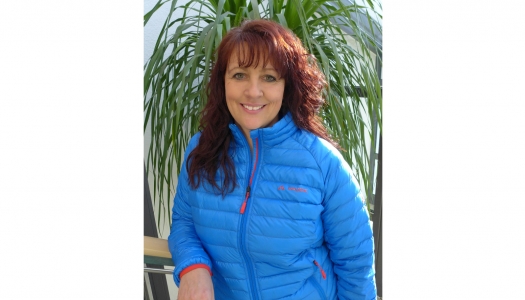
|
»Our impact on the environment and harmful substances management in the supply chain is limited. But with our bluesign® partnership, we can still achieve a lot.« Bettina Roth, Head of Quality Mangement
|
Collaborations with external partners such as the "Fair Wear Foundation" (FWF) and bluesign® help us meet our own demands. The requirements of GRI G4 support us in obtaining other additional information on important and crucial developments, especially in terms of transparency within the supply chain.
Also, the products that we manufacture and sell every year have a very large impact on the environment throughout their life cycle, which is one that we cannot influence, for example, the frequency of laundry during the use phase - see "responsibility of the customer".
Sustainability as a factor in the purchasing decision
In recent years sustainability has become an important social issue. Many customers are looking for information before they decide to purchase a product. Time and again, we receive critical inquiries about our products.
The issue of sustainability is increasingly present not only in society; it is playing an increasingly important role in the outdoor industry. In the past years, many of our competitors have started focusing more strongly on sustainability. This is great news because many solutions can only be achieved by an industry-wide approach.
Incidents like the textile factory fire in Bangladesh in 2012 and videos of the live plucking of Angora rabbits that the animal protection organization PETA has released, create a great deal of publicity and an increasing awareness of critical issues in the textile industry.
Dialogue with customers
We see a trend in the critical consumer who confidently questions companies' actions and actively looks for dialogue.
Our aim is to meet this rising awareness with extensive reporting. It is our goal to make requirements in the supply chain over the next few years a focus of our commitment and to gradually increase transparency even further.
Economic reasons for sustainability strategy
Economics is another issue bringing sustainability into focus. The outdoor industry has been growing at a very minimal level for some years, and has become a highly competitive market. For us as a family business in an industry that is dominated by ever larger companies backed by strong financial investors, sustainability is a means for securing economic independence with careful planning and the use of alternative financing options.
All of these developments are opportunities for us to look at our strategies in an even stronger light and to further intensify our dedication and efforts towards greater sustainability.
see "Sustainable business is worth"




